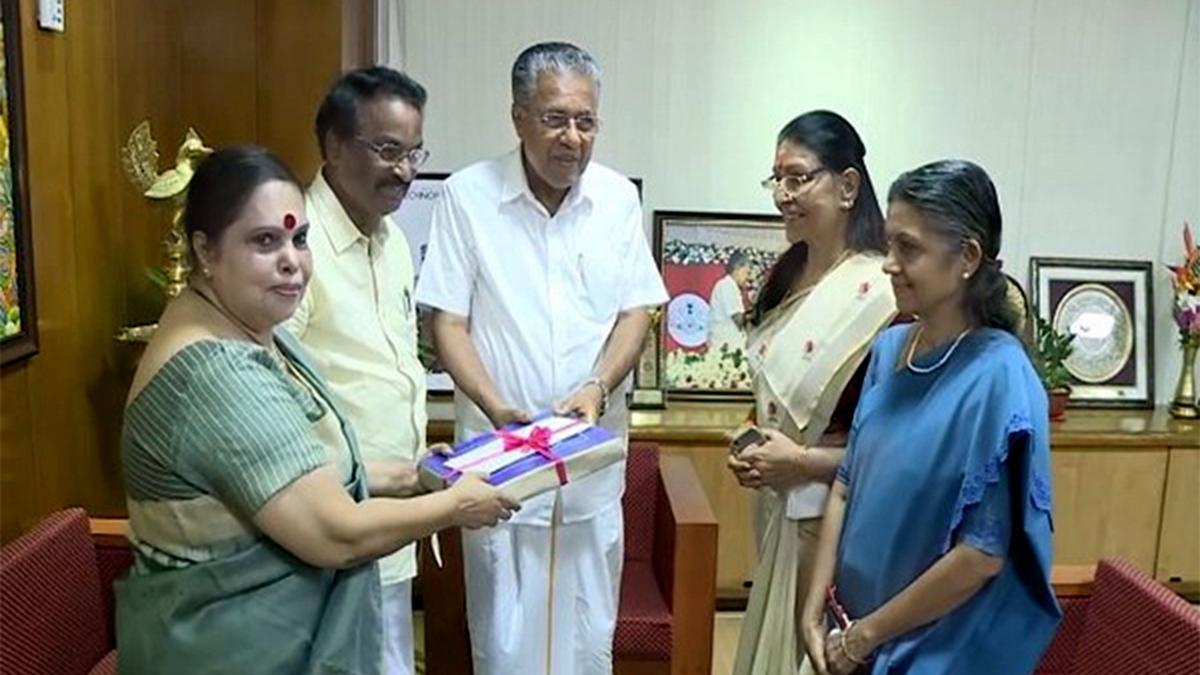
The Division Bench of the Kerala High Court, on Monday, August 19, 2024, dismissed an appeal filed by actor Ranjini, also known as Sasha Selvaraj. The actor challenged a single judge’s verdict which upheld the State Information Commission’s (SIC) order to release the Justice K. Hema Committee’s report concerning the working conditions of women in the Malayalam film industry, with only limited redactions.
The judicial panel presiding over the matter included Acting Chief Justice A. Muhamed Mustaq and Justice S. Manu. They advised the actor, Ms. Ranjini, to approach a single judge by filing a writ petition to challenge the said SIC’s order. The ruling echoed a previous judgment by Justice V.G. Arun, which had validated SIC’s directive, thereby dismissing another writ petition filed by film producer Sajimon Parayil.
Ms. Ranjini’s appeal focused on infringement of her right to privacy, arguing that the redaction of sensitive parts of the report was being left to the discretion of the Information Officer. She stressed that while she was not opposed to the report’s publication in principle, her concern lay in the fact that the Information Officer alone would decide what personal or sensitive details would be omitted or exposed.
The actor voiced apprehensions that the individuals who had given their statements to the committee did not know which sections would be redacted, leading to uncertainty and potential violations of their privacy. She said she had the legitimate expectation that her privacy would be legally protected under the assurance of confidentiality, arguing that this expectation had now been jeopardized. Furthermore, she criticized the SIC for failing to consult the affected parties, including herself, before ordering the report’s publication.
Additionally, Ms.
. Ranjini brought forward the constitutional debate between the Right to Information under Article 19(1)(a) and the Right to Privacy under Article 21. She contended that the latter should hold precedence in cases of conflict between the two rights.
The Justice K. Hema Committee was established following the widely publicized sexual assault of an actress in 2017, with the aim of investigating and improving the working conditions for women in the Malayalam film industry. The committee’s findings, submitted on December 31, 2019, had not been publicly disclosed due to the sensitive nature of the information contained therein.
Two days before the appeal dismissal, the SIC had ordered the report to be made public, following applications filed under the Right to Information Act (RTI). Originally set to be released on Saturday, August 17, 2024, the official announcement was postponed due to the appeal filed by Ms. Ranjini.
The backdrop of this legal tussle lies within broader discussions on the importance of transparency and women’s safety in the film industry. The appeal and subsequent decision have thrown the industry into a frenzy, eliciting a wide range of reactions from different quarters. Proponents of transparency argue that the report’s publication is necessary for fostering a safer working environment, while privacy advocates assert that safeguarding individual rights should not be compromised.
Public reactions have also been notable, with several organizations and individuals vocalizing their stance on the issue. Women’s rights groups have largely supported the court’s decision, seeing it as a crucial step towards addressing and rectifying longstanding issues within the industry. Conversely, some industry insiders have sided with Ranjini, arguing that more robust privacy protections are needed when dealing with sensitive and personal disclosures.
The path forward now involves awaiting the potential writ petition from Ranjini, which would challenge the SIC’s actions directly. Should the petition be filed, it will plunge the legal discourse back into the balancing act between the right to information and the right to privacy, setting perhaps a significant precedent in the realms of privacy law and transparency.
As the debate progresses, it remains evident that the outcomes of this legal process will carry significant implications not only for the Malayalam film industry but also for other sectors where the tension between transparency and privacy continues to be a pivotal issue.












